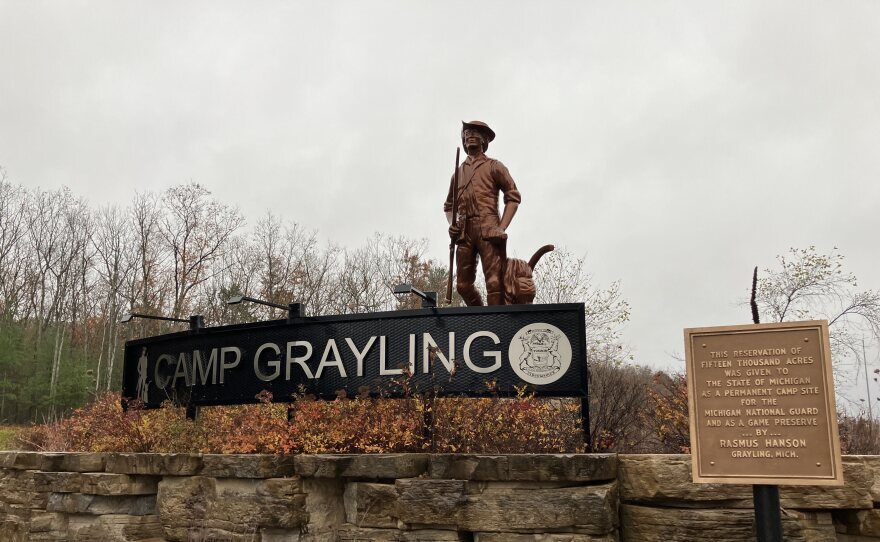A municipal line that will bring hundreds of homes clean water in the Grayling area is inching closer to construction.
Nearly 400 households near the Grayling Army Airfield will soon be able to connect to a water main that will transport PFAS-free water from Kirtland Community College.
The state and Department of Defense are pitching in over $77 million to alleviate PFAS contamination largely leaching from Camp Grayling.
Grayling Charter Township supervisor, Lacey Stephan III, said there are no hook-up costs for residents if they decide to connect and abandon their private wells.
"We have been given a gift of $77 million to come up with a permanent solution, that is going to help, not only now, but for all the generations that come after us," he said.
Construction for the first phase (Areas 1-2) is slated to begin in February, and residents in those neighborhoods have by June to decide to hook up to the line.
The main would later be extended to the adjacent Areas 5-6. Stephan said the goal is to eventually reach homes around Lake Margrethe (Areas 3-4). The entire project with all areas is estimated to cost $118 million and cover up to one thousand residences.
The state has set aside approximately $53 million to date, with another $25 million already secured from the DoD. The National Guard Bureau is working to set aside an additional $25 million for the project, which still needs to be approved by Congress.
Stephan said the township has spent around $100,000 for feasibility studies, but he's grateful for the grant funding sources.
"It's money well-spent," Stephan said. "... We're receiving way more money than anybody in our community has paid in taxes, and if you look at the last 20 years, it's not even close."
Homes in affected areas can connect to the municipal line regardless of their PFAS test results. Stephan said connecting to the water main is optional, but he believes the line is the only long-term solution for households facing contamination.
He points out that while residents would have to pay a water bill, a municipal water source is cheaper and requires less maintenance than a whole-home filter. Under a municipal system, public authorities are also required to test and treat for PFAS and other contaminants routinely.
"If you're comfortable drinking possibly-contaminated water — which (PFAS are) in our water and never going away — if you're comfortable with that, great, that's your choice," Stephan said. "We are providing you a guaranteed clean drinking water option."





